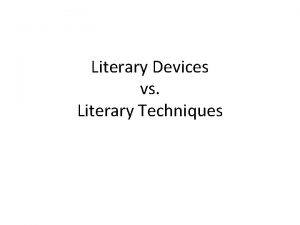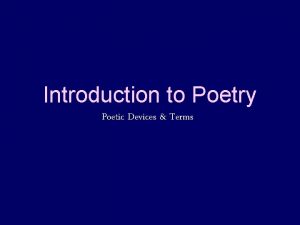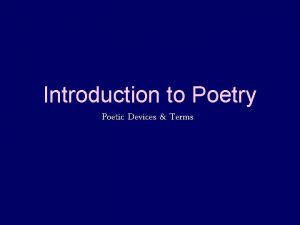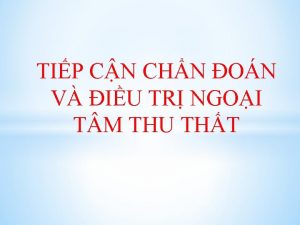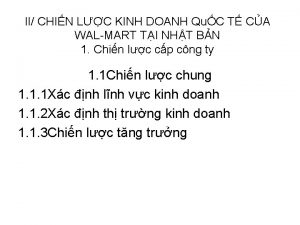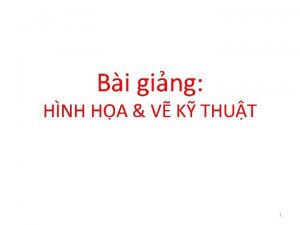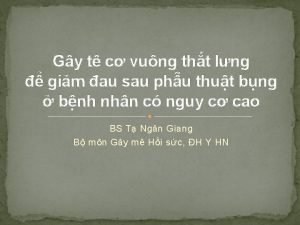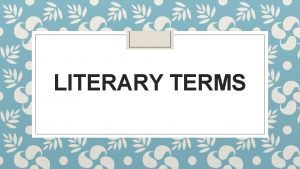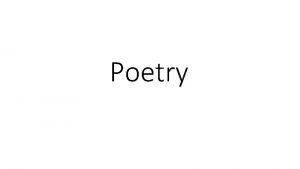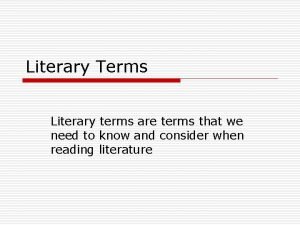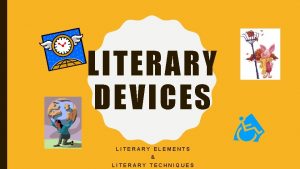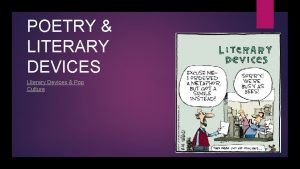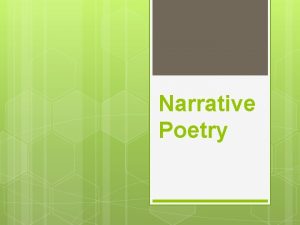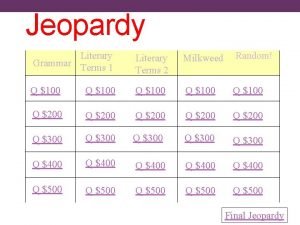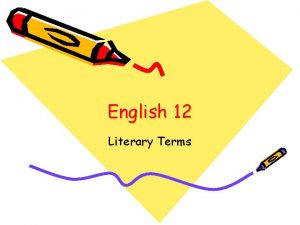Unit 2 Literary Terms Narrative Poetry Poetry that












- Slides: 12

Unit 2 Literary Terms

Narrative Poetry �Poetry that consists of the elements of plot, conflict, character, and setting

Imagery �Vivid descriptions that help the reader visualize a scene through the use of sensory language. (5 senses)

Speaker �A voice that talks to the reader in a poem

Alliteration � The repetition of consonant sounds, especially at the beginning of words.

Rhyme � The matching of final vowel or consonant sounds in two or more words

Rhythm � The recurrence of accent or stress in lines of verse. In the following lines from "Same in Blues" by Langston Hughes, the accented words and syllables are underlined: � I said to my baby, Baby take it slow. . Lulu said to Leonard I want a diamond ring

Repetition � Repeating the same words or phrases a few times to make an idea clearer

Irony � The contrast between what is expected to happen and what actually occurs. � 3 types: � 1. verbal � 2. situational � 3. dramatic

Verbal Irony � Verbal irony is the use of words to mean something different from what a person actually says. � “Thanks for the ticket officer you just made my day!”

Situational Irony � It involves a discrepancy between what is expected to happen and what actually happens. � There is however a difference between situation irony and coincidence or bad luck. � When someone washes his car and it rains, that is just bad luck; nothing led him or her to think that it would not rain. However, when a TV weather presenter gets caught in an unexpected storm, it is ironic because he or she is expected to know the exact weather changes.

Dramatic Irony � Occurs when the audience is aware of something that the characters in the story are not aware of. � In a scary movie, the character walks into a house and the audience knows the killer is in the house.
 Ano ang tayutay
Ano ang tayutay Diction in literature definition
Diction in literature definition Poem introducing yourself example
Poem introducing yourself example Phân độ lown ngoại tâm thu
Phân độ lown ngoại tâm thu Block nhĩ thất độ 3
Block nhĩ thất độ 3 Thơ thất ngôn tứ tuyệt đường luật
Thơ thất ngôn tứ tuyệt đường luật Thơ thất ngôn tứ tuyệt đường luật
Thơ thất ngôn tứ tuyệt đường luật Chiến lược kinh doanh quốc tế của walmart
Chiến lược kinh doanh quốc tế của walmart Tìm vết của mặt phẳng
Tìm vết của mặt phẳng Con hãy đưa tay khi thấy người vấp ngã
Con hãy đưa tay khi thấy người vấp ngã Tôn thất thuyết là ai
Tôn thất thuyết là ai Gây tê cơ vuông thắt lưng
Gây tê cơ vuông thắt lưng Sau thất bại ở hồ điển triệt
Sau thất bại ở hồ điển triệt
